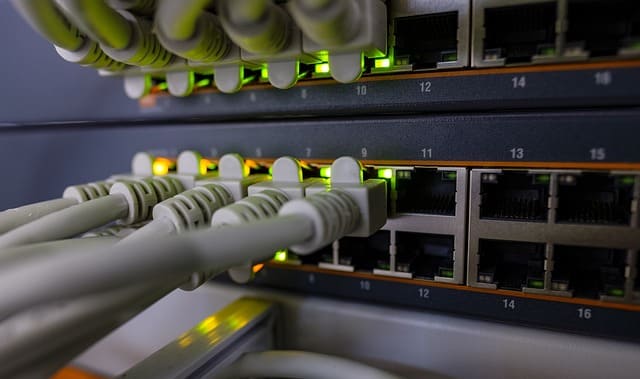High-performance computing (HPC) uses advanced technologies, such as high-speed computers, specialized computer hardware, and software, to solve complex problems requiring a large amount of computation. HPC enables faster and more accurate problem-solving than traditional computing methods by allowing faster data access, increased storage capacity, and improved processing power. Additionally, HPC enables data-driven decision-making by considering large amounts of data to provide insights and solutions. In today’s tech world, HPC can assist with various tasks, from researching medical treatments to predicting weather patterns.
Why does HPC matter in today’s tech world?
High-Performance Computing (HPC) is increasingly being used as a critical tool in today’s tech world. It enables organizations to process data quickly and develop solutions that would otherwise be impossible. Through its ability to solve complex problems with high accuracy and speed, HPC is revolutionizing the way organizations conduct research and development and providing valuable insights into various industries.
Increased efficiency
The increased efficiency enabled by HPC allows organizations to reduce their costs and speed up the development process, allowing them to develop projects faster and more cost-effectively. Additionally, HPC enables data-driven decision-making by quickly analyzing large datasets to identify trends and make predictions. It significantly improves accuracy and helps organizations make informed decisions promptly. Furthermore, HPC assists with disaster response, forecasting, and simulation tasks.
HPC enables faster research
Using HPC, researchers can quickly analyze data and identify patterns that could not be detected using traditional methods. HPC-enabled research also allows simulations to be run quickly and accurately, which can help scientists better understand complex phenomena and make predictions. HPC is, therefore, essential for speeding up the research process and providing accurate results. Moreover, HPC reduces the risk of errors by quickly providing data-driven solutions.
HPC as a Service
HPC as a service is becoming increasingly popular among organizations. HPC as a service allows organizations to access HPC capabilities without investing in expensive hardware and software, making HPC more accessible to businesses of all sizes. HPC as a service also allows organizations to pay for computing resources on an as-needed basis, making it easier for them to scale up or down quickly and cost-effectively. Additionally, HPC, as a service, eliminates the need for organizations to store and maintain their computing infrastructure.
HPC benefits big data applications
HPC is essential for handling the large amounts of data associated with Big Data applications. HPC enables the analysis and processing of large datasets quickly and accurately, allowing organizations to gain valuable insights. HPC can also be used to build predictive models that identify data patterns and predict future outcomes. Furthermore, HPC can be used to develop artificial intelligence (AI) applications, which are increasingly used in healthcare, finance, and robotics.
Increased security
HPC allows organizations to process sensitive data securely by using hardware-based encryption techniques. Additionally, HPC can help organizations detect security vulnerabilities and respond quickly by deploying patches and updates. It helps organizations protect their data from cyberattacks and improve the overall security of their systems. Moreover, HPC allows organizations to quickly identify and isolate suspicious activities, reducing the chances of a data breach.
Risks of using HPC in the tech world
HPC is becoming increasingly prevalent in today’s tech world, and while it offers a range of benefits, it also poses certain risks. Users should know the risks to ensure that their use of HPC is secure and compliant.
Data breaches
HPC users must be aware of the risks associated with data breaches. HPC systems store large amounts of sensitive data, and if this data is not adequately protected, it can be accessed by unauthorized parties, resulting in a data breach. Organizations should use vital encryption techniques to reduce the risk of a data breach and regularly audit their networks for any suspicious activities.
System failures
HPC systems are complex and require careful maintenance to ensure they operate correctly. HPC systems can experience system failures and data loss if not appropriately maintained. To mitigate this risk, organizations should use high-quality hardware and software components, perform regular backups and updates, and monitor the system for any signs of failure.
Compliance issues
Organizations must ensure their HPC systems comply with data protection and privacy regulations. Non-compliance can lead to hefty fines and the loss of customer trust. Organizations should, therefore, stay up to date on any changes in these laws and regularly audit their systems to ensure they are compliant.
Security threats
HPC systems are vulnerable to cyberattacks, such as distributed denial-of-service attacks and malicious software. Organizations should use vital authentication techniques and deploy firewalls, antivirus software, and other security measures to protect their HPC systems from these threats. Moreover, organizations should monitor their networks for suspicious activities and respond quickly to detected threats.
Outdated technology
HPC technology constantly evolves, and organizations must use the most up-to-date hardware and software. Outdated technology can lead to system failures and other issues, so organizations should regularly update their systems to ensure they have access to the latest features and capabilities. Additionally, organizations should monitor the market for new developments and deploy the most appropriate HPC solutions.
















